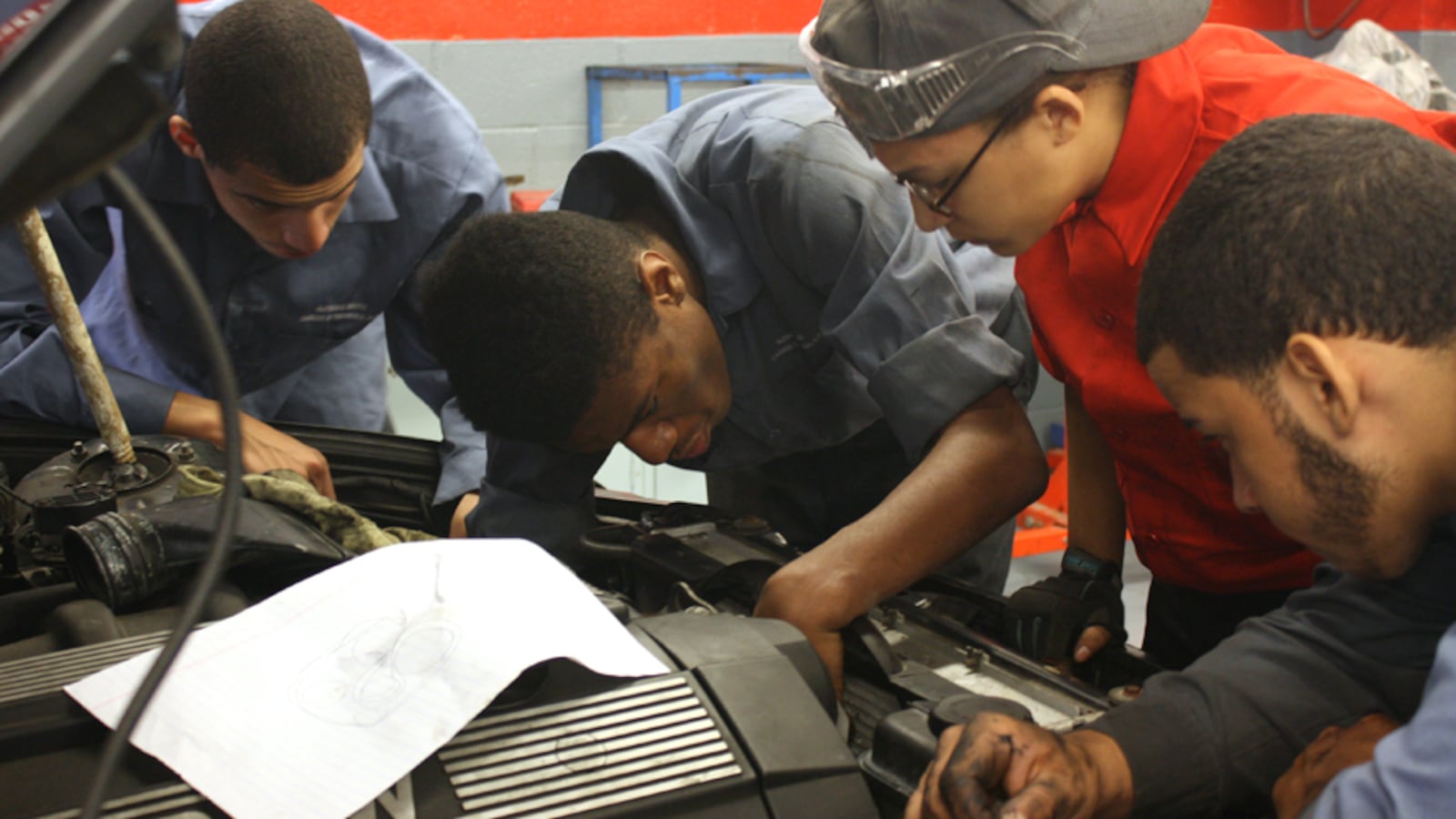With demand for career and technical education growing, the New York City Department of Education announced this week an additional $113 million in spending on expanding and enhancing such programs.
A City Council education committee hearing was called Wednesday to consider a bill that would require the Department of Education to report each year on student demand for CTE, how many CTE programs are offered, and graduation rates for students in CTE schools and programs.
Members also discussed the obstacles that stand in the way of CTE offerings, such as teacher training, infrastructure needs and the state’s cumbersome approval process.
Chalkbeat reported in August that some schools forego the formal approval process, which can take as long as six years. As a result, those schools can’t offer CTE-endorsed diplomas and students don’t have a reliable way to measure program quality. Councilmember Daniel Dromm, chair of the committee, made many of the same points at the hearing, and Chalkbeat’s story was cited extensively in the council’s briefing paper.
“We need to reduce the bureaucracy and streamline the process at entry level,” said Sterling Roberson, vice president for career and technical education at the United Federation of Teachers, in his prepared remarks.
Career and technical education programs have come a long way from what was once described as “vocational” education. CTE programs emphasize rigorous academics along with training for in-demand and high-paying jobs.
Councilman Mark Treyger, along with advocates who testified during the hearing, touted the benefits of CTE schools for underserved students. In New York City, as of 2013, students enrolled in CTE schools were more likely to graduate than those who were not, a finding that’s especially true for students with disabilities or who are learning English.
But Sam Streed, a policy analyst with Advocates for Children, said steps need to be taken to make sure those students get into CTE programs in the first place.
“We cannot tell from public data whether they have equitable access to the full range of available programs,” he said, in prepared remarks.
On Wednesday, Department of Education Deputy Chancellor Phil Weinberg said the department will launch or enhance 40 CTE programs over four years. At least three of the new programs will offer students the chance to earn an associate’s degree — for free — along with their high school diploma.
The expansion has already begun, with three new programs slated to open this fall. They include a culinary arts program at August Martin High School in Queens, a digital communication and media program at Brooklyn Studio Secondary School and a solar energy installation program at High School for Energy and Technology in the Bronx.
Additionally, the department has changed the way it funds CTE programs. For the first time, more than 70 traditional academic high schools got additional per-student funding for CTE programs. In the past, only CTE schools received such funding.
Still, City Council members and advocates made it clear that more changes are needed.
According to a 2015 survey by Partnership for New York City, less than two percent of CTE students participated in internships. John Widlund, executive director of career and technical education for the DOE, said the department has increased the number of internship slots from fewer than 1,500 to more than 2,000.
Roberson, of the UFT, said it’s also important to make sure CTE teachers have the opportunity to participate in real-world training and update their skills as needed.
“It’s easy to open up the door,” he said. “The challenge is, as things change…how do we make sure the teachers are prepared?”

